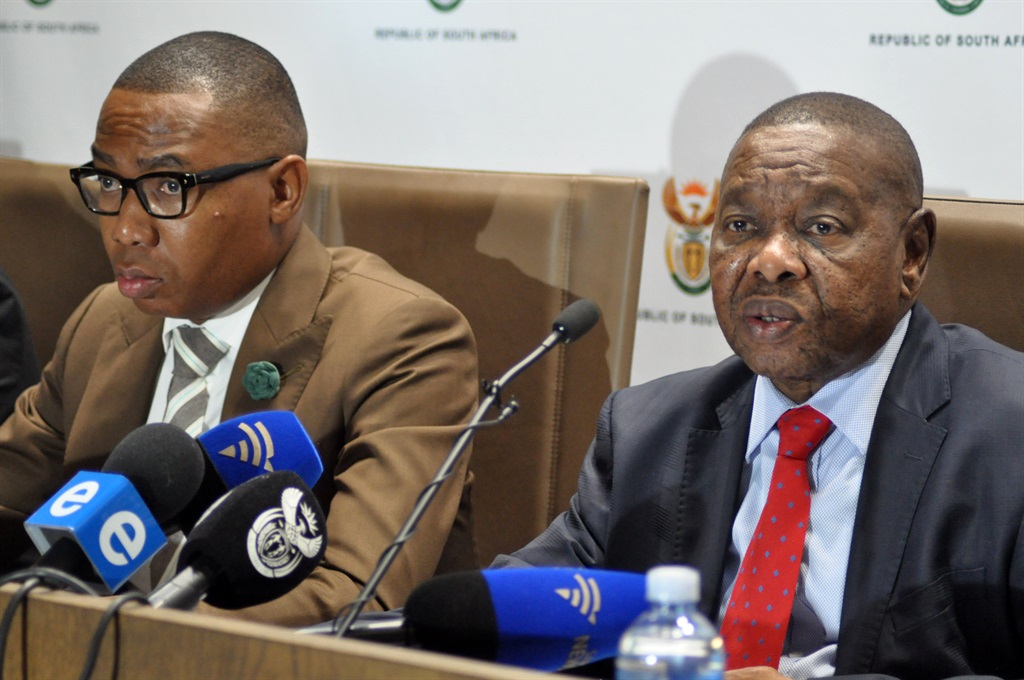
An extra R5 billion is set to be allocated to top up the R32 billion injection of funds already allocated for higher education student funding over the medium term.
However, Finance Minister Pravin Gordhan cautioned in his 2017 budget review of the “strain and risk” on the public purse when policy changes such as the fees adjustments were made without adequate consideration of budgetary consequences.
These decisions required “billions of rands to be shifted within tight resource limits”, and were causing other critical programmes “to face unanticipated budget cuts”, he said.
Gordhan said that government was monitoring and managing the impact of the fees adjustment - among a series of other pressures on the public purse. The ability of the fiscus to respond was limited in an environment of low growth.
“Over the long term, unless South Africa returns to a path of rising per capita incomes, it is doubtful that sufficient resources will be available to fund all the policy objectives set out in the National Development Plan. In such a scenario, government would have to adjust its agenda and determine which policies to implement, downsize or delay,” he said.
In his prepared speech in the National Assembly, Gordhan said that the government recognised the needs articulated by students. Billions of rands had been shifted even though the “fiscal envelope was constrained”.
The additional funds would ensure that no student whose combined family income was below R600 000 a year would face fee increases.
“All poor students who applied and qualified for National Student Financial Aid Scheme (NSFAS) awards, and who have been accepted by a university or a Technical and Vocational Education and Training college, will be supported,” he said.
“As the economy grows, we will be able to do more to finance an expansion in tertiary education opportunities and improvements in student funding.”
A “clear roadmap” was needed to tackle the magnitude of student funding requirements. The Heher Commission of Inquiry into Higher Education and Training would complete its work by June this year, and the inter-ministerial committee on higher education, headed by Minister Jeff Radebe, was engaging all stakeholders.
He stressed that it was a shared responsibility to transform education in the country, and employers needed to make a greater contribution to funding initiatives.
In his budget review, Gordhan said that some of the shortfalls in university education for the current financial year had been generated from reserves from the National Skills Fund. The carry-through costs of the shortfalls – R5.3 billion in 2018-2019 and R5.7 billion in 2019-2020 - were funded from other sources.
The additional R5 billion allocation would be for the 2019-2020 financial year.
At a media briefing this morning, director-general Lungisa Fuzile said one could “quibble” about whether the additional funds were sufficient. “But it is important that we don’t focus our attention almost exclusively on higher education. The building blocks – early childhood development and basic education - have to be fixed.”
He also said that the efficiency of the education system needed to be improved, and that money was only part of the solution. “It would not make sense for a country like ours to keep on pumping resources into a system that in a certain sense falls short of giving the country what is required. We need to ensure that we are getting the best for every rand that we spend. If not, we need to be asked what must be done? We need to have that conversation.”
Over the next three years, government will spend a total of R105.9 billion on transfers to universities, while the National Student Financial Aid Scheme will spend R54.3 billion.
In terms of basic education over the next three years, R751.9 billion will be spent, including R48.3 billion for direct subsidies to schools, R42.9 billion for infrastructure and R12.7 billion for learner and teacher support materials.
 |
| ||||||||||||
| |||||||||||||




 Publications
Publications
 Partners
Partners








